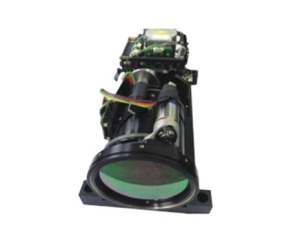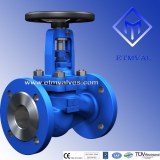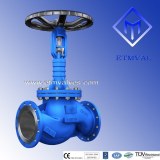Cooled Thermal Systems
1. Basic Concept
The first is a cooled thermal imaging core. The imaging detector of the cooled infrared camera core is equipped with an integrated cryogenic refrigerator unit. This is a device that reduces the detector temperature to the cooling temperature.
In order to reduce the thermal noise below the level of the imaging signal at the scene, the drop in detector temperature is essential. The cooled infrared camera core is the most sensitive infrared thermal core that detects the slightest temperature difference between objects.
They operate in the spectral mid-wave infrared (MWIR) and long-wave infrared (LWIR) bands because of the high thermal contrast in these bands from a physics perspective.
Thermal contrast refers to a change in signal with respect to the target temperature. The higher the thermal contrast, the easier it is to detect scenes where the target temperature does not differ much from the background.
The imaging detectors provided by the uncooled infrared camera core do not require a low-temperature cooled infrared thermal image camera core. The common detector design is based on pyroelectric detectors, which are small vanadium oxide (or polysilicon) resistors with large temperature measurement coefficients, large surface area, low heat capacity, and good thermal insulation.
Changes in the temperature of the scene cause the temperature of the infrared detector to change, which is converted into an electrical signal and processed to produce an image. Uncooled detectors are used in the long-wave infrared (LWIR) band, and targets with similar ground temperatures emit the most infrared heat in that band.
Compared to cooled detectors, uncooled detectors have fewer manufacturing steps, higher yields, and lower vacuum packaging costs. Moreover, the uncooled infrared camera core does not require extremely expensive cryocooler equipment. The uncooled infrared camera core is equipped with fewer moving parts, and under similar operating conditions, it tends to have a longer service life than a cooled infrared core.
2. Speed Comparison
The imaging speed of the cooled infrared core is faster than that of the uncooled infrared core. The exposure time of high-speed thermal imaging can reach microseconds, which can stop the apparent motion of dynamic scenes and capture more than 62,000 frames per second. Applications include thermal analysis and dynamic analysis of jet engine turbine blades, automotive tire or airbag inspection, supersonic projectiles, and explosions.
The cooled ir camera core has an extremely fast response speed and takes advantage of the global shutter. This means that it can read all the pixels at the same time, rather than reading them line by line like an uncooled thermal imaging core, enabling a cooled thermal imaging core to capture sharp images and measure moving objects.
3. Spectral Filtering
One of the biggest advantages of a cooled thermal imaging core is the ability to easily perform spectral filtering to detect details and temperature measurements, which are difficult to achieve with uncooled thermal imaging core.
However, when selecting according to the actual application, you should pay more attention to parameter settings. ULIRVISION provides a professional consulting team to solve various professional problems for customers. In addition, as an ir camera manufacturer, we provide both cooled and uncooled cores for you to choose.
Localisation : 17F Block C,Sunwave Building,581 Huoju Avenue, Binjiang District,Hangzhou 310052,Zhejiang,China, 310025 Hangzhou,
Personne à contacter : fang Mandy, +86 0571 87209885








